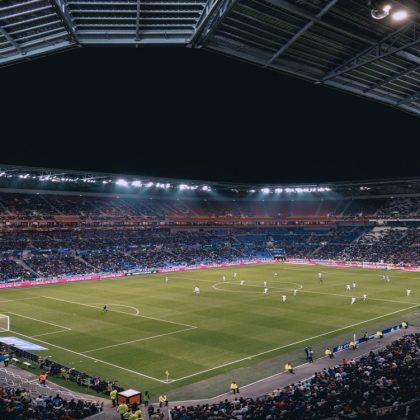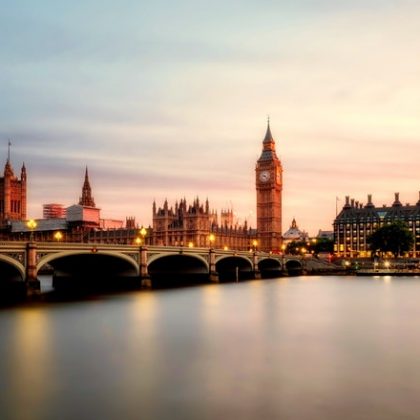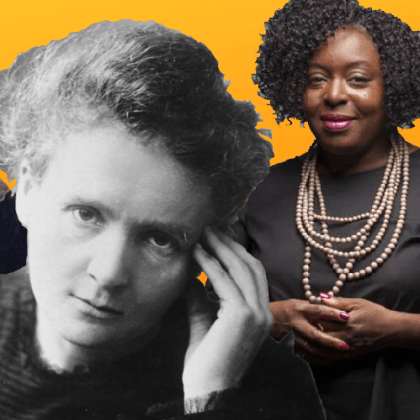In Defence of Newcastle Fans: Business, Human Rights and Amoral Capitalism
Newcastle United is now owned by Saudi Arabia’s sovereign wealth fund. The UK media has almost universally condemned the takeover, and Newcastle fans support for the takeover, as paradigmatic examples of contemporary amorality, valuing football over human rights. The Saudi regime has committed heinous acts, with the murder of Jamal Khashoggi and the blockade of Yemen two recent examples, and more generally Saudi Arabia remains harshly authoritarian. It is also true that Newcastle supporters have generally welcomed the new owners, and historically when problematic entities bankroll footballing success these clubs’ fan bases grow, such as at PSG, Manchester City and Chelsea.
A divide emerges between supporters and the rest, begging the question as to why. This is a relevant question for business and human rights (BHR) because football fans seem not to care about human rights implications despite near universal condemnation and ample evidence. If a situation of such apparent moral clarity and emotional importance cannot generate the appropriate sentiment, it seems unlikely that bottom-up human rights respect is possible. These large fan groups represent a random cross-section of society. They cannot be particularly unethical. The question is why human rights abuses matter so little to society.
Some argue that fans support their team regardless of ownership, and that, with problematic owners now commonplace, this type of deal is normalized. Neither of these defences necessarily do more than provide an excuse for self-interested fans. A third defence I think better explains why this moral condemnation fails to gain traction among fans, which is the problem of amoral capitalism. Amoral capitalism springs from the theory that capitalism is and should be amoral, that the job of capitalism is to create profit alone, and from that purity of purpose wider benefits flow. Today it denotes an interlinked global structure in which both businesses seeking profit and states seeking investment behave in antisocial and rights-violative ways, and partner states that violate rights severely, without serious critique, linking most states, companies, and individuals to harm. A few bad owners alone do not mean all ethical criteria should be forgotten, but this global structure means that few ethical standards exist. BHR governance standards do apply, but they do not in practice significantly ameliorate this structure.
A few facets of amoral capitalism relevant to the Newcastle situation are 1) that every important actor partners with bad actors, 2) that these partnerships are rarely condemned in mainstream accounts, 3) that as individuals we cannot help but support unethical actors, 4) that this structure creates a moral vacuum.
The UK government and many lauded firms and individuals partner with Saudi Arabia, and other apparently heinous regimes. The world is constructed through webs of such necessary business partnerships, between states, with states and corporations, and between corporations. ‘Necessary’ becomes flexible, such that there is no partner too bad if they bring profit or investment. It is relevant but beyond the scope that the UK and its liberal partners hardly have clean hands. Rather than seeing this as ‘whataboutery’ we should ask why it is acceptable for democratically elected governments to proactively seek Saudi partnerships, and why it is expected that Newcastle fans should still feel moral disgust at such partnerships. It seems more like cherry-picking that media organizations can support governments that seek Saudi partnerships but decry the ethics of Newcastle fans.
This rationale for this particularized moral code is rooted in the ideological structure of amoral capitalism today. Liberal theorists such as Hayek and Freidman saw business as, morally, the private realm of individual freedom, and, technically, as most efficient when concerned only with profit. This manifests directly today in dispassionate media coverage of business-related activities, leaving the sporadic moral stands against it on shaky ground. Saudi Arabia, China, Qatar, are condemned in geopolitical stories, but in business stories, partnerships with such states are welcomed for their added value or described neutrally. Mainstream publications evaluate business on its success at generating profit, not its ethics, and condemn attempts to humanize business. Business activities, short the criminal, are part of the logic of capital, necessary even if brutal. The football fan has no such counterweight, and so is judged much more harshly. As business has grown to envelop politics and society this public/private divide is increasingly false, reducing the scope of moral accountability significantly.
Fans themselves exist in this structure, compelled to support bad actors and bad practices. Fans pay Rupert Murdoch for televised Premier League games and almost inevitably wear clothes made in sweatshop conditions or through forced labour. Fans bank with companies that facilitate tax havens, and use oil, gas, and cotton sourced by UK firms from states that are apparently both monstrous and good business partners, and work for employers like ex-Newcastle owner Mike Ashley that breach minimum wage laws. Everyday activities cause harm and support bad actors, weakening attempts to elevate any one specific bad actor in the public consciousness. Even attempting to delineate murderous business partners from merely exploitative ones is difficult when, from factories and mines to climate change and poverty, the deep structure of global business and specific actors and actions therein cause and profit from murder and death. This unavoidable structure means that there is no remotely universal ethical redoubt at which society can draw a line.
From this perspective, it is not that football fans strain to provide ethical justification of extreme self-interest. Rather, they follow the signals received daily from empowered actors. This does not make it right, but it does make it routine, and reduces the crucial emotional impulse against practices. Many fans would like football to be less money-driven. But they cannot shape this. The condemnation of Newcastle fans locates powerless individuals as moral agents while ignoring those who proactively shape the world. Most Newcastle fans probably know little about Saudi Arabia or global politics. They are a ludicrous group to place in the ethical vanguard, and the fans rightly reject this role. If media organizations are genuinely appalled by this outcome, they might try establishing ethical limits of empowered state and business actors first. They may find, however, that within the bounds of contemporary globalized capitalism, the slope is far too slippery for any such project to succeed. Whether BHR can eventually lead this change remains an open question.
David Birchall is a lecturer in law at London South Bank University. He specializes in business and human rights with a focus on the commodification of socio-economic rights, including the impact of markets, business law, and norms of contemporary capitalism on access to human rights.






